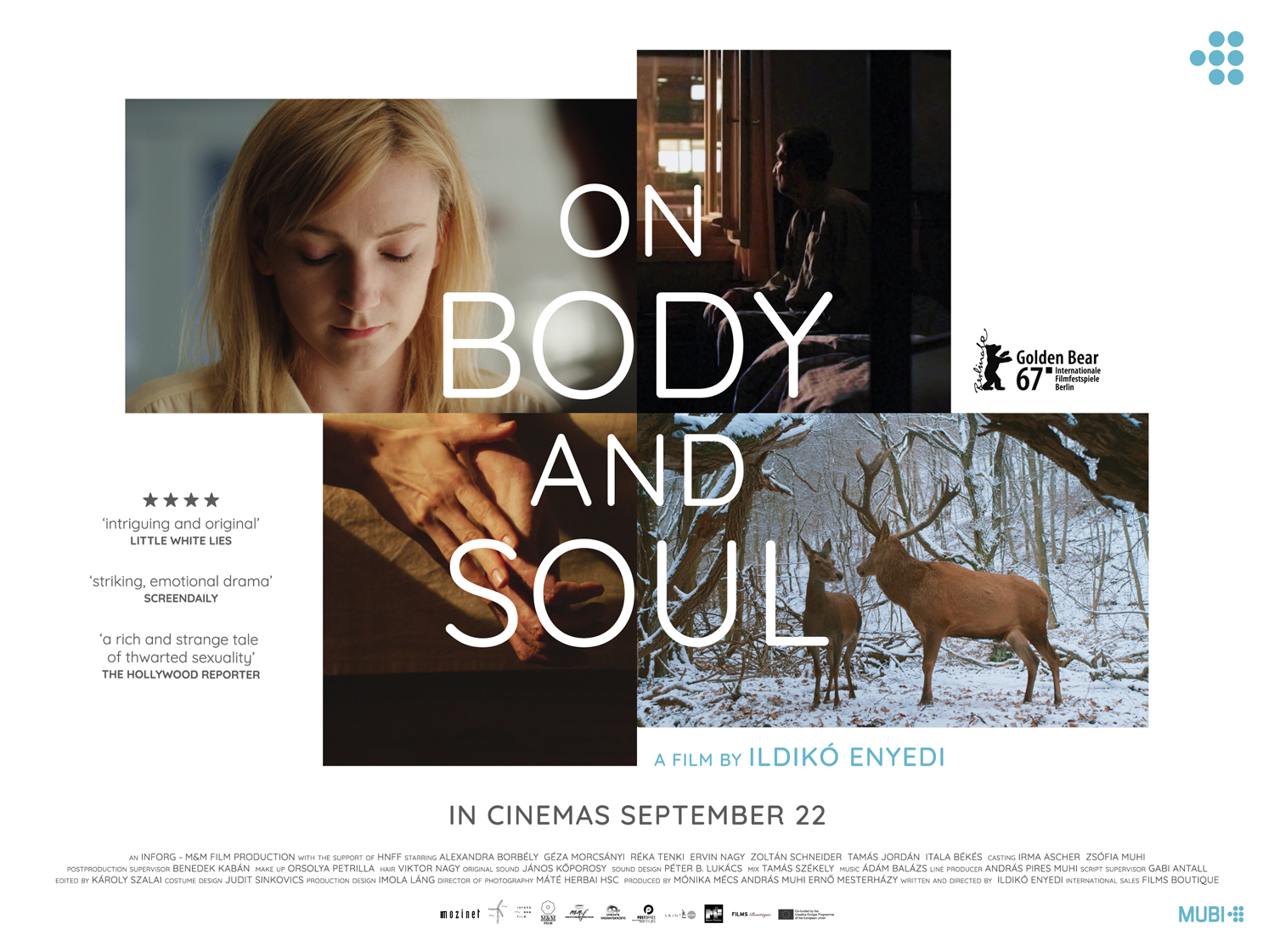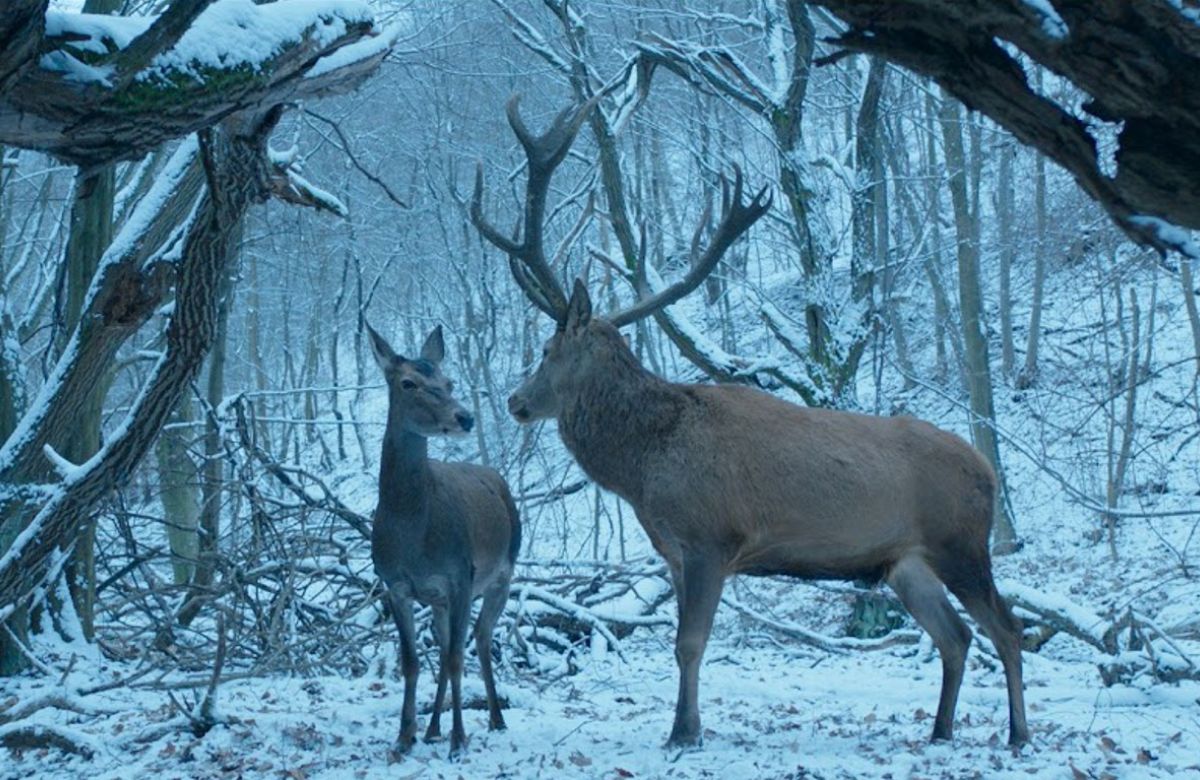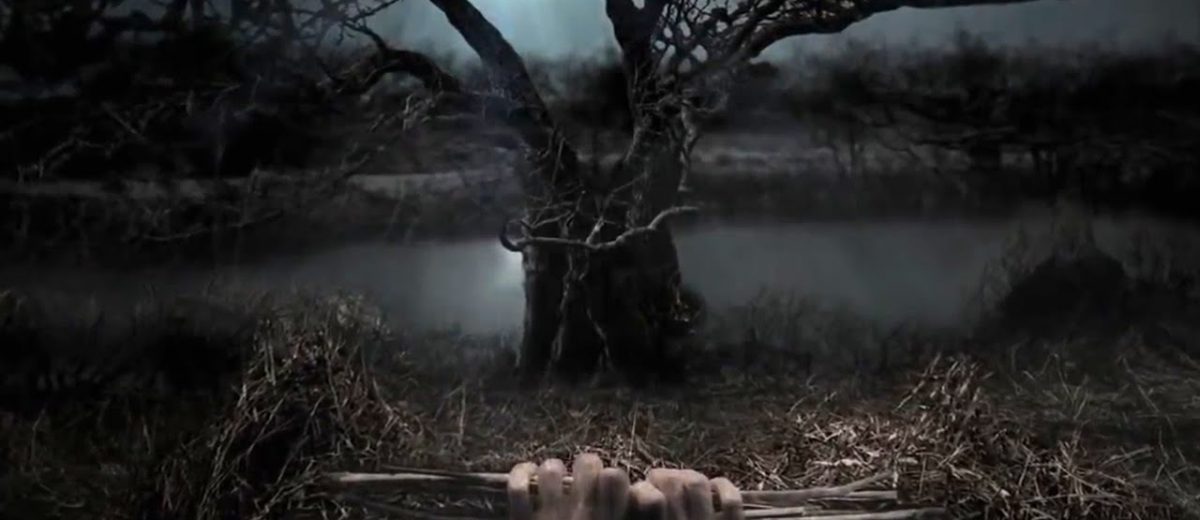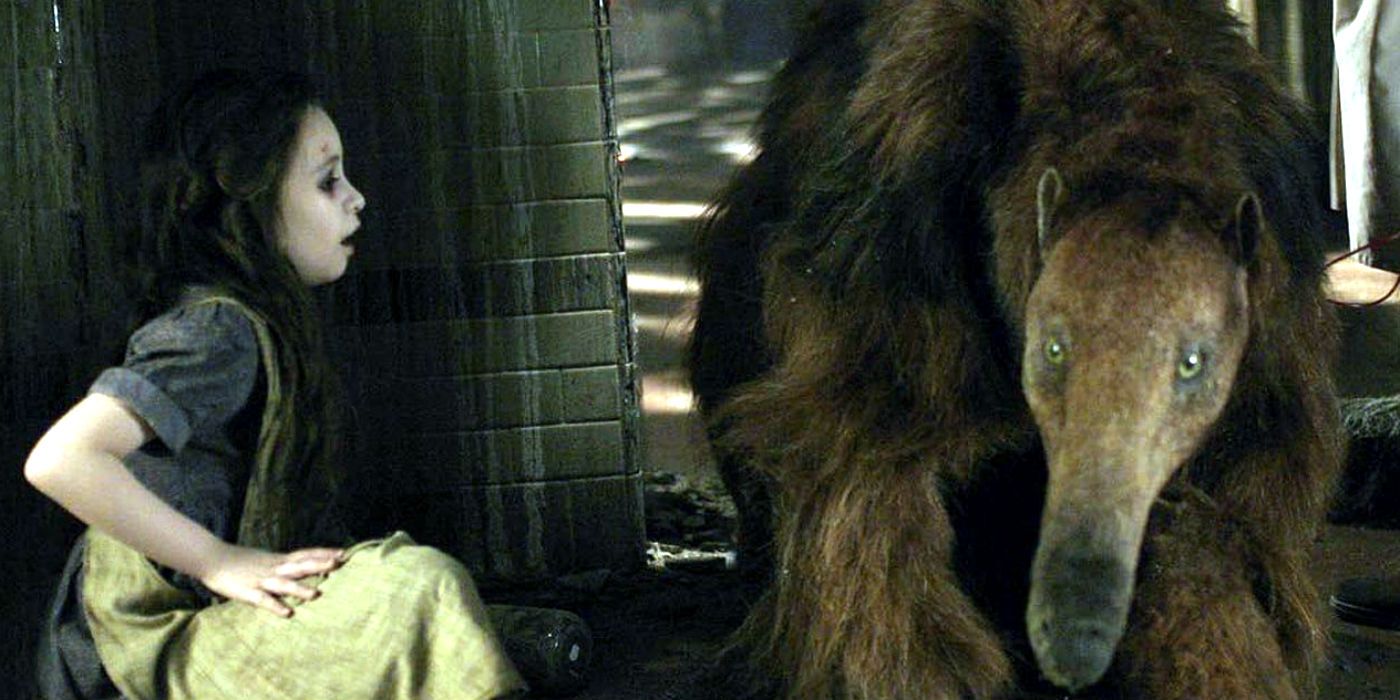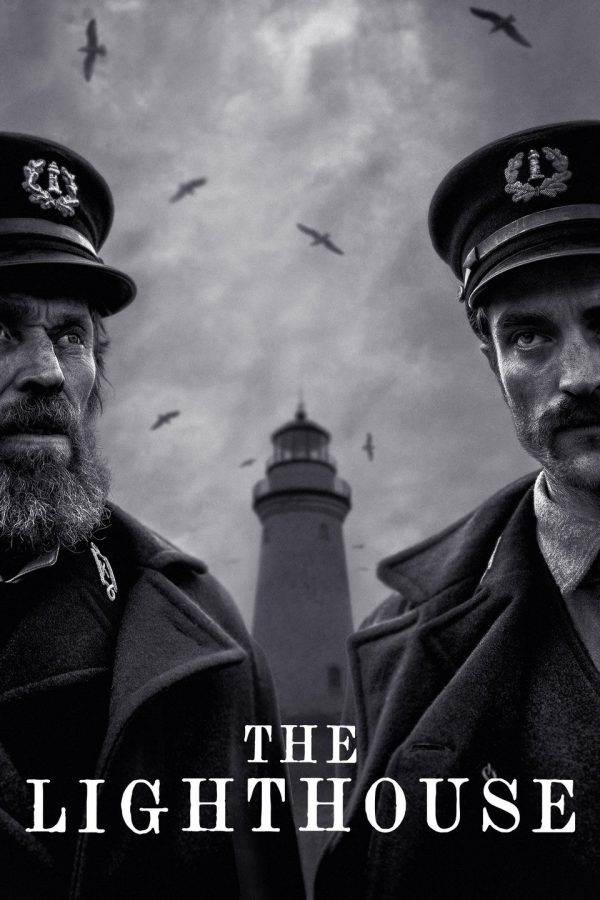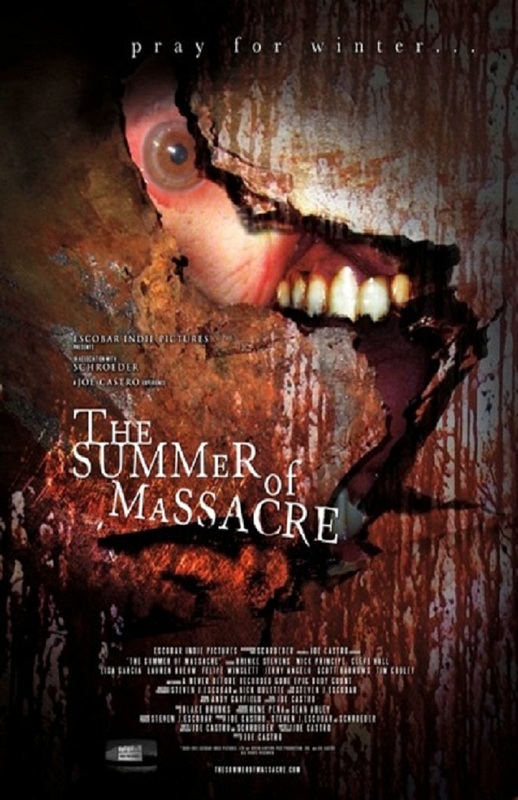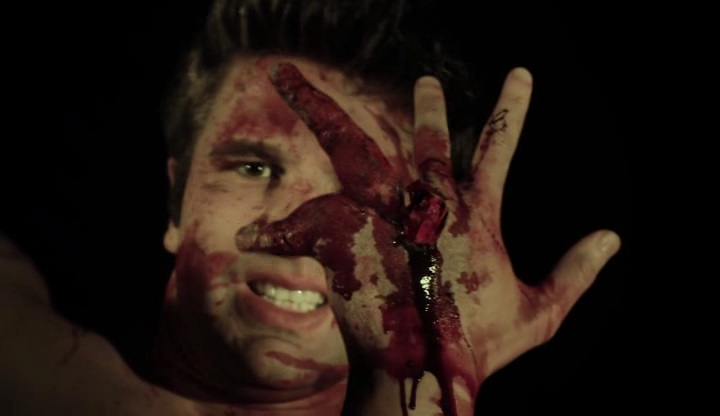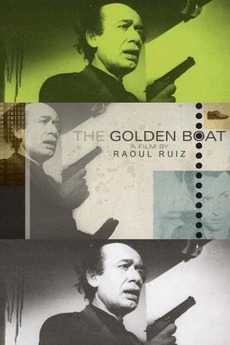Director: Ildikó Enyedi
Screenplay: Ildikó Enyedi
Cast: Géza Morcsányi as Endre;
Alexandra Borbély as Mária; Réka Tenki as Klára; Zoltán Schneider as Jenő;
Ervin Nagy as Sanyi; Itala Békés as Zsóka
 After a hiatus of eighteen years,
Hungarian director Ildikó Enyedi returned
back with a success, On Body and Soul
the 2017 Golden Bear winner at the Berlin Film Festival, and was nominated for
the Best Foreign (International) Oscar. Befitting the director of My 20th Century (1989), an
idiosyncratic debut crossing together separated twin sisters to Thomas Edison's light bulbs, On Body and Soul is a growing romance
tale which takes place at an abattoir, in which a significantly older male chief
financial officer Endre (Géza Morcsányi)
and a very introverted quality inspector Mária (Alexandra Borbély) develop a connection due to a shared dream,
finding themselves continually dreaming they are a deer and a doe respectably
in a winter snow covered woodland.
After a hiatus of eighteen years,
Hungarian director Ildikó Enyedi returned
back with a success, On Body and Soul
the 2017 Golden Bear winner at the Berlin Film Festival, and was nominated for
the Best Foreign (International) Oscar. Befitting the director of My 20th Century (1989), an
idiosyncratic debut crossing together separated twin sisters to Thomas Edison's light bulbs, On Body and Soul is a growing romance
tale which takes place at an abattoir, in which a significantly older male chief
financial officer Endre (Géza Morcsányi)
and a very introverted quality inspector Mária (Alexandra Borbély) develop a connection due to a shared dream,
finding themselves continually dreaming they are a deer and a doe respectably
in a winter snow covered woodland.
Shot in an abattoir, all septic
white and cold, with their connection pushed together when someone steals
medical goods for mating the cattle, I will warn viewers there are scenes with
real cows being killed and cut up for meat. The images of a slaughterhouse and
the real place, (i.e. including smell and spatial environment), do differ for
me but I will make the reader aware of this out of warning. On Body and Soul also, depending on how
you view Mária, is one of the best depictions of a learning/mental disability
even if it is never explicit on the story about her. A new staff member with an
uncanny ability of memory recall, but called "Snow White" by
colleagues who view her like one might do an actual alien, Mária's
characterisation is fascinating from this perspective.
Quiet, nervous and able to
remember even the twelfth sentence spoken to her, Mária became interesting for
me, as a viewer born with autism as an avatar for being an adult with learning
disabilities, when we see she still goes to counselling. She has, amusingly,
still gone to the consoler for children (due to the location looking like a
children's room and he asking her if she preferred someone else), but that was
where the idea came into consideration. Distant from everyone due to extreme
shyness, able to describe how one's dilating eyeballs can tell if they are
lying or not but with difficult able to communicate, as if this skill was
instead learnt by her artificially than naturally in adaptation, she is
blatantly an isolated person but it is only with context it comes off as
written as someone on the autistic spectrum.
As someone who also has a pedantic
and vital talent, extremely good at her work that complaints about her reducing
the beef to class B comes from her being able to tell its far fatter than
regulation by mere inches, she could have easily become a distant character
were it not for how in depth to film deals with her as a figure and the world
around. Almost alien to anyone else, she
is only really able to express herself using (of all things) PlayMobil toys by
herself to figure out how to talk to people like Endre next time, a more extreme
case of a disability than myself in my own personal take on the film. The bond
grows only part of the way through between Endre and Mária due to accident, a
psychologist brought in due to the consideration the theft of under the counter
hormones might have some sexual hang-up in place, which means that this
potential romance is one that is awkward and takes a long time to actually
develop as the dream is the only initial connection. Alexandra Borbély's performance is the best regardless of fan
interpretation; hers alongside the script is a hell of a superior take on such
a figure if you did describe it as such, even as a proxy interpretation of a
disability superior than many films about disabled characters which are cloying,
saccharin, patronising or squander potential by becoming all the above.
Beyond this, On Body and Soul follows the virtue of world cinema of pure
unpredictability, a romantic drama in the least expected of places and in an
unfamiliar world, with a foot firmly planting into reality, a starkly shot
drama, and the other in the ethereal with the serene scenes of the deer. The
cast beyond Borbély , especially Géza Morcsányi as Endre, are just as
strong which adds a credibility to this entire premise without it coming off as
absurd. Everything is ordinary and characters are far from perfect, such as the
running gag of one of Endre's co-workers and a friend who is a larger middle
age man, who says man have control over woman in the typical chauvinistic
manner, only for his relationship to his wife clearly the opposite but still an
existing one. It is amazing to think, in
On Body and Soul's balance of
incredibly black humour and emotional depth, which the film manages to go
through some incredibly dark humour and frankness in its disarmingly quiet
tone. There is an Oscar nominated
film now because of this one, even over Dogtooth
(2009), that following the joke Mária watches porn to understand how sex
works, you get images of actual hardcore porn explicitly shown in the
background to one scene, managing to make it come off as a quiet amusing
surprising as the film succeeds in finding a balance between its eccentricities
and its warmth.
As a result, the film can be both
hilarious at points but also utterly emotional even within the same plot point.
Like a cousin to Argentinean director Martin
Rejtman, who continually made jokes involving heavy metal in his films, a
gag about Mária trying to find "love music" starts with death metal, only
for the song found as a result of the scene tying into when heartbreak takes
place and a very close to the bone, and uncomfortably realistic, attempted
suicide with wrist cutting happens in the last act. (Again, I'll warn the
viewer about this whilst wondering how the practical effects creator made it
look realistic on an actor completely naked during the scenes.) Comparing back
to My 20th Century, an incredibly
stylish and magical fantasy film shot in monochrome, On Body and Soul is a much more subdued work in tone but you can
tell it is the same filmmaker here. Something very unpredictable underneath it
surface that, to confess something, I openly had a chance to see much earlier
ago from when I covered this only to turn off after a few minutes, a lack of
patience which I can thankfully rectify with the statement that On Body and Soul is a very good film. An
exceptional one to add weight to this, from a director whose work is sadly not
as well seen but will hopefully reap that benefits that this production's success
(and a restored and available version of My
20th Century) for the better.
Abstract Spectrum: Eccentric
Abstract Rating (High/Medium/Low/None): None
